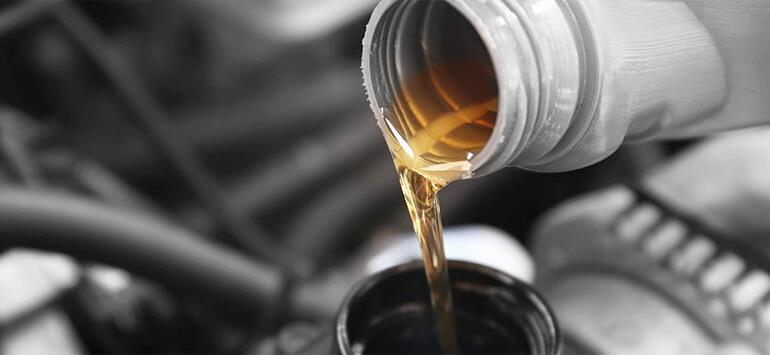HOW FREQUENT OIL CHANGES HELP MAINTAIN ENGINE HEALTH

Frequent oil changes play a crucial role in maintaining the health and longevity of an engine. Oil lubricates the moving parts inside the engine, reducing friction. Without proper lubrication, metal parts would rub together, causing wear and tear. Fresh oil ensures the engine components move smoothly, preventing damage.
Mechanics at our Car Repair Shop in Astoria regularly perform oil and filter changes and is a top destination for an oil change in Astoria
Oil helps dissipate heat generated by the engine, keeping the temperature within an optimal range. Over time, oil can lose its ability to effectively cool the engine, leading to overheating and potential damage. Regular oil changes ensure the oil is functioning properly to manage heat.
Oil traps dirt, metal particles, and combustion byproducts, preventing them from building up inside the engine. As oil ages, it becomes less effective at removing these contaminants. Changing the oil ensures the engine remains clean, preventing sludge buildup that could damage components.
Oil has additives that help protect engine parts from rust and corrosion. Over time, these additives break down, and without fresh oil, moisture and acids can corrode engine parts. Regular oil changes ensure the engine is properly protected.
Fresh oil helps maintain optimal engine performance, contributing to better fuel efficiency and smoother operation. Old, degraded oil can cause the engine to work harder, reducing fuel economy and increasing wear on engine parts.
Keeping the engine well-lubricated and free from contaminants helps prevent premature wear and failure of internal components. By changing the oil regularly, you extend the life of the engine, reducing the likelihood of costly repairs or replacements.
In summary, frequent oil changes are vital for maintaining the performance, efficiency, and longevity of an engine by ensuring proper lubrication, cooling, cleaning, and protection. Failure to follow the manufacturer recommended schedule for oil changes and the type of oil that must be used can lead to engine damage and perhaps the voiding of your manufacturer warranty. Here is some information on how infrequent oil changes can damage your engine.

DAMAGE TO ENGINE FROM INFREQUENT OIL CHANGES
Infrequent oil changes can cause significant damage to an engine over time. As oil degrades, it loses its lubricating properties, leading to increased friction between engine components. This can cause premature wear and tear on vital parts such as pistons, crankshafts, and camshafts, ultimately reducing the engine's efficiency and lifespan.
Engine oil helps dissipate heat from the engine. When oil is old or insufficient, it becomes less effective at cooling the engine. This can cause the engine to overheat, potentially damaging the cylinder heads, gaskets, and seals, and even leading to a complete engine failure in extreme cases.
As oil ages, it accumulates dirt, debris, and combustion byproducts, forming sludge. This sludge can clog the oil passages, leading to poor circulation of oil throughout the engine. As a result, some parts may not get sufficient lubrication, which increases the risk of friction, wear, and eventual breakdown.
Fresh oil has additives that protect the engine parts from rust and corrosion. Old, degraded oil loses these protective qualities, which can
allow moisture and acids to accumulate inside the engine. This can cause rust and corrosion on critical engine components, leading to damage or even failure.
Over time, oil picks up contaminants like carbon, metal particles, and moisture from the combustion process. If the oil isn't changed regularly, these contaminants can cause abrasion on engine parts, leading to the erosion of surfaces like cylinder walls and bearings, which can result in poor engine performance and permanent damage.
As oil breaks down, the engine may start running less smoothly. You may notice reduced acceleration, rough idling, or decreased fuel efficiency. Over time, this can lead to engine misfires, poor throttle response, and an overall decrease in performance.
Old oil can cause seals and gaskets to dry out and crack. Once this happens, oil leaks can occur, which further reduces oil levels and exacerbates other issues like overheating and lack of lubrication.
In severe cases, neglecting regular oil changes can result in complete engine failure. This typically happens when there’s significant damage due to lack of lubrication or overheating, and the engine can no longer function properly.
In summary, infrequent oil changes can lead to a cascade of problems, including overheating, increased wear, corrosion, loss of performance, and even complete engine failure. Keeping up with regular oil changes is essential for maintaining engine health and avoiding costly repairs.
Our Car Repair Shop in Astoria offers oil change services for all makes and models of cars. If you are in the area, see us for an oil change in Astoria.
